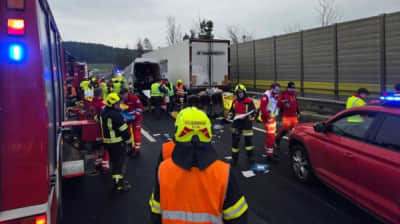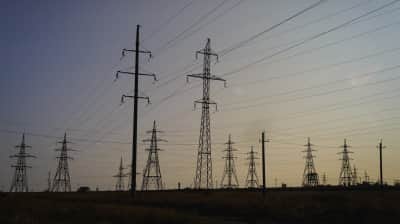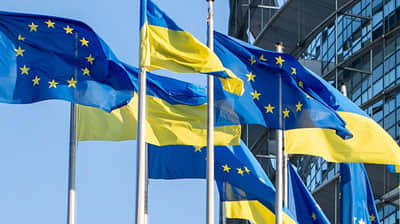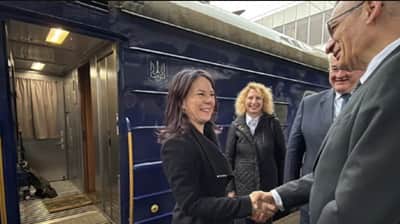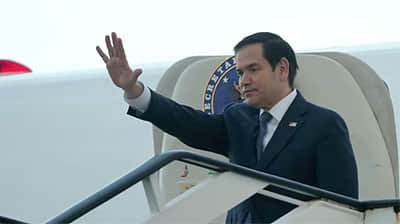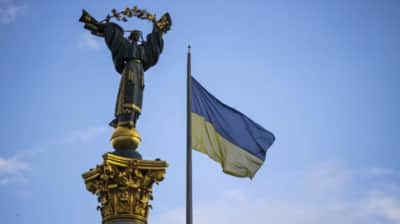Russian forces employ Soviet deep battle theory – ISW
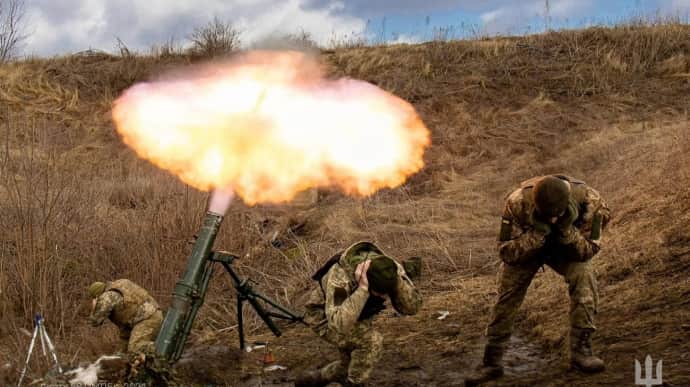
Ukrainian military observer Kostiantyn Mashovets has reported that Russian forces are seeking to regain manoeuvre on the battlefield using the Soviet deep battle theory but have so far failed to implement it due to Ukraine's current capabilities.
Source: Institute for the Study of War (ISW)
Details: Mashovets stated that Russian troops were trying to employ Soviet deep battle theory for operational planning to quickly break through Ukrainian defences but could not achieve the effect of Soviet operations, which implemented this tactic.
The deep battle theory refers to a product of Soviet operational art developed in the 1920s and 1930s designed to restore manoeuvre to the battlefield after World War I.
This required engaging the adversary forces on several fronts and in-depth at the tactical and operational levels by targeting their assets at all echelons with artillery and airstrikes and attacking the rear in combination with frontal attacks to break through defensive lines.
Deep battle theory also suggests that successful operational planning includes sequential operation planning to prevent the adversary forces from recovering coherent defensive positions after being breached.
The key operational principles of deep battle theory remain relevant in modern warfare, and the Russian military could be able to regain battlefield manoeuvre and overcome Ukrainian defences if they managed to successfully plan and execute operationally sound actions.
The Ukrainian army could also use deep battle theory to regain battlefield manoeuvre in its favour if its Western partners properly supplied it with resources.
Mashovets, however, noted that the current limited capabilities of Russian forces, specifically in conducting effective counter-battery fire, engaging targets at operational depth, concealing force concentrations from the adversary, and countering Ukrainian technological parity, prevent Russian forces from achieving the surprise effect at the operational level necessary to break through Ukrainian defence lines and conduct deep operations.
Mashovets pointed out that the Russian military command cannot implement certain technological innovations in operational planning, such as remote mine planting, large-scale operations using UAVs, command-and-control and communications using modern technology.
The ISW added that Ukraine's current combat capabilities deprive Russian forces of the ability to regain manoeuvre on the battlefield on Russian terms. However, it is heavily dependent on Western military assistance in core areas. Only the United States can provide most of the necessary aid.
To quote the ISW’s Key Takeaways on 13 February:
- The US Senate passed a supplemental appropriations bill that would provide roughly $60 billion of security assistance to Ukraine, the vast majority of which would go to US companies and personnel.
- Ukrainian military observer Kostiantyn Mashovets reported that Russian forces are attempting to restore manoeuvre to the battlefield through Soviet deep battle theory but are struggling with implementing Soviet deep battle so far due to current Ukrainian capabilities.
- The current Ukrainian battlefield capabilities that are denying Russian forces the ability to restore manoeuvre to the battlefield on Russian terms largely depend on the provision of Western military assistance in key systems, many of which only the US can provide at scale.
- Ukrainian forces will not be able to retain these advantages and deny Russian forces the ability to restore manoeuvre to the battlefield on Russian terms without further assistance from the United States and its partner countries in the near and medium term.
- Russian sources are purposefully exaggerating Ukrainian casualties in a Russian strike near Selydove, Donetsk Oblast on 13 February.
- The Kremlin appears to be asserting the right to enforce Russian Federation law on officials of governments in NATO member states over actions taken in the performance of their official duties within the territories of their own countries.
- US sanctions are reportedly constraining Russian efforts to skirt the G7 oil cap amid continued indications that India may be rethinking its growing position as a customer of Russian oil.
- Russian forces recently made confirmed advances near Kreminna and in western Zaporizhzhia Oblast amid continued positional engagements along the entire frontline.
- The British International Institute for Strategic Studies (IISS) think tank stated on 12 February that Russia is likely able to sustain its current rate of vehicle losses for at least two to three years by producing new vehicles and reactivating vehicles from storage.
- The Kremlin continues efforts to solidify control of occupied Ukraine through institutionalising social benefits and services.
Support UP or become our patron!

